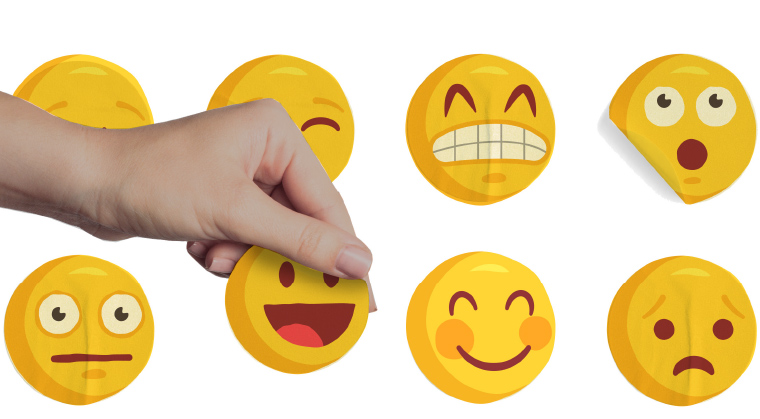Master Your Moods


Most of us have an Aliza in our lives. She’s the type who is always miserable about something and usually has a complaint on her lips.
“Aliza is like a walking thunderstorm. If I was feeling good before she entered the room, I won’t be feeling good once she’s there.” Whether she’s 13, 33, or 53 years old, Aliza impacts her surroundings negatively with her bad moods.
Then there are the Yoni types. “That kid is like a light! When Yoni enters the room, everything and everyone wakes up! He’s so happy that you don’t want to leave his daled amos.”
Moods are contagious. A person’s sour mood has the power to lower our good one, and vice versa. It all happens beyond our awareness, without our permission. Only with difficulty and conscious intention can we resist the impact of someone else’s mood.
What about you? What’s your normal mood like? How do you think people feel when they’re around you? We each have our common mood, the state we usually find ourselves in (and that others find us in). Perhaps your mood is so dominant in your life that you’ve never been able to escape it. Or perhaps you’ve never thought of yourself as having a particular “mood,” but rather a collection of “moods” — fluctuating states of emotion and energy. While we’re asking all these questions, we should ask the most basic one of all: What exactly is a mood?
Mood vs. Emotion
Mood is similar to, but not the same as, emotion. Emotion is a fleeting feeling. We experience excitement, boredom, hurt, joy, confusion and an array of other momentary, subtle, and varied emotional reactions to life. Mood, on the other hand, is a longer, more static state of energy. A bad mood means you’re experiencing an overall drop in energy, happiness, and equanimity. If you’re in a good mood, you’ll feel an overall rise.
The intensity or duration of all your “fleeting feelings” can, of course, impact your mood. For example, when your spouse neglects to complete an important task, you might feel disappointed, angry, and upset. These emotions can cause you to be in a bad mood for several hours. The same dip in mood can be brought on by everyday disappointments and frustrations, stressful situations, unpleasant conversations you’ve just had, and the general racket and negative ruminations in your head.
But moods aren’t always caused by emotions. You might be in a general state of grumpiness or joy because of the weather outside, the amount of sleep you’ve had, your biological rhythms, the state of your health, substances and medications you’ve ingested, the foods you’ve just eaten, and the chemical consequences of your genetic makeup.
All human beings are subject to the mood effects of circadian rhythms — the natural shifting energies of the body throughout the day. We mindlessly manage these changes in energy and mood by reaching for our coffees and snacks, moving and stretching, and seeking other kinds of stimulation or relief in response to the regular dropping of our energy and mood levels. In other words, everyone is kind of moody.
Moods can sometimes pass quickly (as they do for young children), but they can also last for days or weeks. You, your spouse, and your kids are most likely to have good days and good hours that alternate with days and hours that feel less good or sometimes downright bad. In fact, unless we’re diligent and vigilant, we’ll easily find more reasons to be down rather than up.
What’s encouraging is that we can actually gain mastery of our moods, learning how to create a fairly constant state of simchah that will spill over into our homes.
(Excerpted from Family First, Issue 615)
Oops! We could not locate your form.












